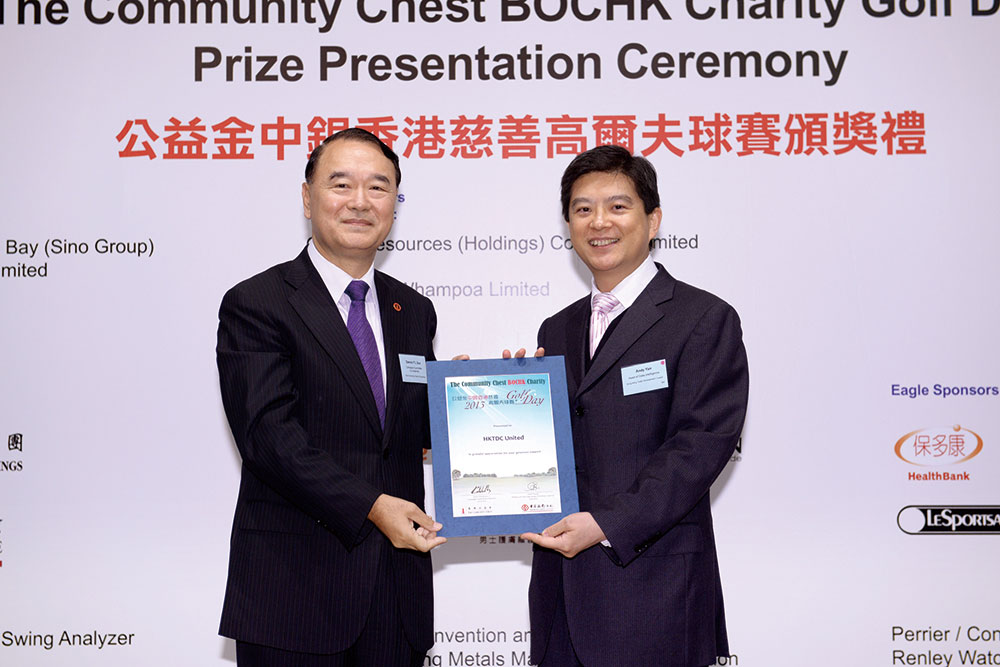When did you first use a
computer?
I had never touched a computer
before I studied at the Chinese
University of Hong Kong. Then, my
family spent a small fortune on an
Apple IIe, and that's my first memory
of a personal computer. Somebody
told me that if we had used that
money to buy Apple stocks we
would now be multi-millionaires.
How about the internet?
At university we started to
connect some computers together,
something like a PC LAN, and we
had some limited access to the
internet as students. Our initial
impression was not very positive. It
was difficult to surf because there
wasn't a very good browser. And
then we almost forgot about it
when we graduated. But at work
we started to use emails massively in
the business world.
What did you study at CUHK?
I majored in computer science, with
a minor in business management
and I also took some elective courses such as fine arts, communication
skills, and philosophy. This
broadened my exposure. I also
realised the most effective way to
apply computer technology was
to go into business management
and marketing. So, I started as a
management trainee at Cathay
Pacific Airways, hoping to be part of
the drive towards the application of
computer technology. Looking back,
I think that was the right choice.
Then you moved to HSBC at a
very dynamic time for e-banking.
Yes, in the late 1990s there was
a boom in internet applications
in various industries but that did
not start in the banking industry,
which tends to be conservative. At
first, top management and other
colleagues hesitated to put banking
services online, adopting a "wait
and see" attitude. They let some
small banks try first, and see which
customers would trust to put their
money on the internet. I was HSBC
business project manager at that
time, working on HSBC's corporate
website and ebanking services. We were very aware of risk, so we did a
lot of market and technical research
to understand customer needs,
service demand and the services
available to see if they could protect
customer transactions.
When did HSBC retail banking
go online?
HSBC took an intermediate step
called PC Banking in 1997. This
had similar functionality to going
online but it was riding on HSBC ‘s
proprietary network. We needed
to send an engineer to your home
to install software, or we sent a
disc and the customer installed
some software on their own PC.
It was extremely secure. Then we
did some demonstrations to top
management to show that even on
the internet a similar level of security
could be achieved, and finally we
were able to launch eBanking
service on the internet. By 1999, we
were responsible for more than 20
countries in Asia, so it was a hugescale
project. There were many
sleepless nights!
Did this involve databases?
Yes, at HSBC I worked on the first
customer database in Hong Kong's
banking industry and started the
database marketing, customer
segmentation, and data analytics in
the largest retail banking database
in Hong Kong.
You then moved to Octopus, at a
time of great growth.
Initially, Octopus was mainly used for
public transport. But it was evolving
fast to become a payment provider
for retail, so we moved into vending
machines, convenience stores, and
then supermarkets. My mission was
to create new revenue streams by
establishing an information business.
With my background in computer
science, I could see how databases would help the business. My boss
at Octopus was quite visionary
and he could see that we held a
lot of customer data and it could
be a goldmine. So we developed a
new kind of business. We carried
out customer analytics for our
retail business customers with the
cardholder data/behaviour we had.
We could provide business insights,
track and give offers to loyal
customers. And we then developed
a rewards scheme based on Octopus
cards.
What attracted you to Hong
Kong Trade Development
Council?
Well, I must say before I came to
HKTDC, I wasn't sure what their
main business was and I asked myself, "Why do they need me to
manage databases?" It wasn't like
Octopus where the role of databases
was more obvious. "Could they
really leverage my knowledge and
experience?" I wondered. In fact, I
discovered that HKTDC maintains
a database with several million
companies, and it is core to the
business.
What is the HKTDC business
model?
It's a B-to-B business, and the mission
is to promote Hong Kong as a
platform for international trade, and
to explore business opportunities for
Hong Kong businesses all over the
world. In order to achieve this, we
build up our own customer database
by keeping track of anyone who has registered or joined our events
and their profile details in order to
do business matching. This means
matching the suppliers and the
buyers and HKTDC has been doing
this for more than 50 years. So, our
database is business-orientated,
company-based, and it is global.
How do you leverage the
database?
To my initial surprise, I found that
we had quite a lot of targeted
marketing technologies in order to
serve event participants. Every year
we host over 40 large-scale events
in Hong Kong such as trade shows
and conferences, book fairs and
food expo etc., attracting more than
one million people, and we also run
more than 800 events worldwide.
But our main offering is the trade
fairs with exhibitors, suppliers and
buyers from all over the world with
growing emphasis on conferences
which would end up as a conference
and exhibition model.
How has database intelligence
evolved over the years at
HKTDC?
In the last five years we have been
using more applied technologies to
uncover the business opportunities
hidden in our data base.
Traditionally, our data source was
mainly from our events, where we
could track our customers' footprint
in the physical events and our online
eMarketPlace to see what they were
interested in. Such analysis helped us
understand each buyer's needs. We
could also help vendors by analysing
which buyers are interested in their
products and their profile, etc.
Nowadays, we aggregate online and
onsite behaviour to give us a more
comprehensive view of both buyers'
and sellers' behaviour.
Is HKTDC migrating more
online?
Yes, starting from last year, and
partly because of the pandemic
situation, we had to move all our events online. Before that everything
was pretty much focused on physical
events although we had some
online services. For the future we
realise that our events will be in a
hybrid mode. The industry mode,
and peoples' habits have changed.
How hybrid mode will HKTDC
go?
For instance in the exhibitions or the
trade shows, our focus will still be
very much on the physical events.
With the help of online interaction,
we will extend the buyers' and
sellers' interaction before and after
the physical events. Of course, we
will offer different kinds of packages
for different kinds of customers in
order to maximize our customer
base, as each customer has different
needs.
How does HKTDC leverage the
potential of its database?
For the 40 large-scale events,
we have totally more than 100 predictive models to identify
potential customers, to increase
the show-up rate, etc. We are also
developing customer segmentation
models based on their value
prediction. Then we can offer
tailored services to each segment of
customers. Matching is our standout
service, so we are developing a
sophisticated AI engine for businessmatching
recommendations.
What makes HKTDC's offering
unique?
Our differentiator is the
internationality of our events, and
the matching of global suppliers and
buyers for both merchandise and
service trade. Instead of competing
with others by event size or
investment, we package our event
as a brand-building and promotion
occasion for business services and
products. Similar to the consumer
electronics show in Las Vegas, the
big companies rush to show off
their products. We are constantly sharpening our matching algorithms.
Our buyers and suppliers know
they can count on us to achieve
successful business outcomes.
What is Hong Kong's niche as a
business service provider?
Diversity is one of the key
competitive edges for Hong Kong.
The international connections, along
with the free flow of information,
merchandise, and money. Also,
the talents in Hong Kong and their
flexibility. I believe we still have
world-beating international exposure
and connections with the external
world.
What are Hong Kong's people's
standout strengths?
In HKTDC, many of our colleagues
start their career and spend their
whole career here, which may help
foster a unique culture in HKTDC.
We have a strong "can-do" spirit
because HKTDC always needs to
develop new frontiers in order to capture business opportunities
for HK SMEs in this ever-changing
world. We are also action-oriented,
attentive to detail, good at execution
with accurate planning because
we are actually in a show business
which has no tolerance of failure.
Even if there is a No.8 Typhoon
signal or Black rain storm, "The
show must go on!" How we surfed
through the pandemic situation was
another good demonstration of our
spirit. We have a very strong can-do
culture and I'm very proud of it!


